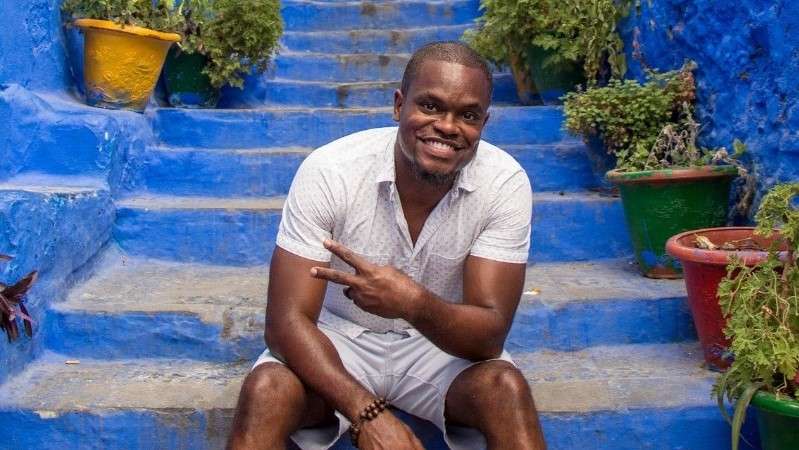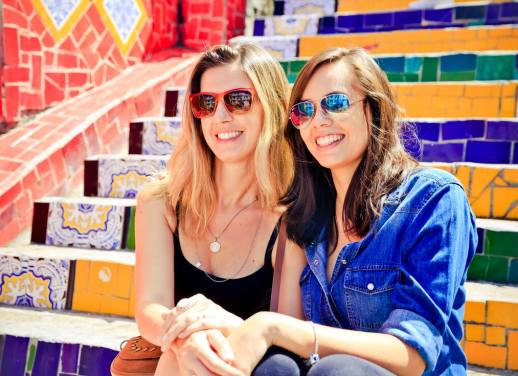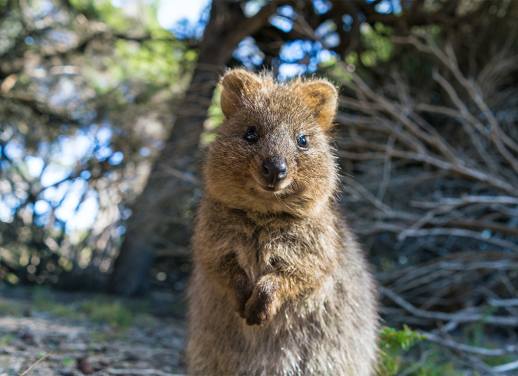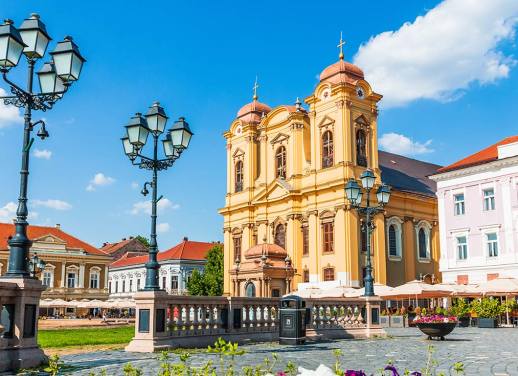Welcome to Community Conversations, an interview series featuring Intrepid travellers, creatives and activists in our community. In every Q&A we’ll ask an inspiring individual about their world view and their world adventures.
Today, we’re talking to Lawrence Phillips, founder and CEO of the first Black travel review site, Green Book Global. The website’s name is inspired by The Negro Motorist Green-Book, which was published from 1936 to 1966 by Harlem-based Victor Hugo Green. The guidebook outlined safe places for Black travellers to eat and sleep throughout the USA during the Jim Crow era.
Hi Lawrence! Tell us about yourself.
I’m originally from Boston, Massachusetts, and I currently live in Harlem, New York. I’ve been married three years in September, and I have a new daughter who is 14 months — she was born during COVID, so that was an adventure! My wife and I love to travel, and my daughter had already been to five countries while she was still in her mother’s womb. We did West Africa in late December 2019 and went to Ghana, Sierra Leone and Nigeria, and also did Morocco earlier that year and Barbados for our “Babymoon”.
What is Green Book Global?
Green Book Global is essentially the first Black travel review site. But what makes us different is that instead of rating activities, we rate cities. Cities have a score for adventure, things to do, relaxation, affordability, nightlife, history, local food, romance and, most importantly, what it’s like travelling while Black.
So far, we have over 5,000 reviews on the site for over 400 destinations. So, it’s not just my opinion, but thousands of Black travellers from all over the world sharing their authentic travel experiences.
What inspired you to start Green Book Global?
I started Green Book Global after feeling burnt out from doing work as a consultant. I needed a break for my mental health and happiness, so I quit my job to travel the world. In 10 months, I travelled to 30+ countries and all 7 continents, including Antarctica.
But while I travelled, I learned two things. One, it takes an exorbitant amount of time to plan for a trip. I was constantly researching where to go, what to eat, what to do. Maybe I want to relax this time, maybe I want to party.
Secondly, as a Black traveller, I was nervous about travelling and not knowing how my Blackness was going to be received. And there was no platform that could tell me that. You can Google it, but you can’t really get a consolidated view of what that’s like. That’s how Green Book Global was born.
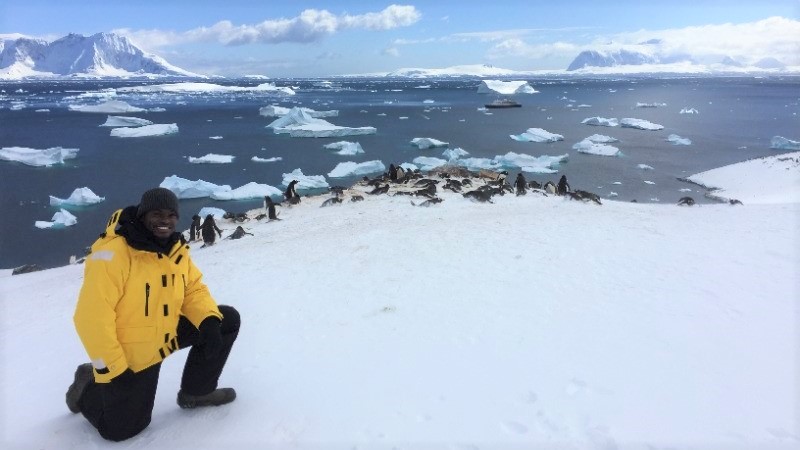
What would you like the travel community/industry to know about Black travellers?
There was an article in Huffington Post that said Black travellers find themselves in experiences that are purely customised for white consumers. As a result, a lot of Black travel groups formed because we know we are not catered to like other demographics. These groups allow us to feel protected and make us feel special when we travel.
For example, say you go to Johannesburg. A lot of tourist just go there as a pass-through city to go on a safari. But if you focus just on the safari, you’re missing all the amazing Black culture and history Johannesburg has to offer. What about Mandela and Desmond Tutu and Vilakazi Street in Soweto? What about the vibrant art scene, festivals and rooftop bars? That’s something a Black consumer would want to know.
Black consumers are more inclined to learning about the history of a location. Are there Black historical references in this destination or is there an interesting local history?
What issues do Black travellers uniquely face in their travels?
When you’re in a place where there’s not much diversity, people will stop to take pictures of you, touch you without your permission, touch your hair – especially for Black women. You can see their phones under their arms as they’re trying to take a picture of you. Some level of it is curiosity, but some of it’s also racism. It gets to be overwhelming and sometimes you’re exhausted and just like, “I don’t care if it’s curiosity or racism, I don’t feel like dealing with it”.
I’d also say that because Black culture is popular, sometimes people think you’re very cool, which is great, but sometimes you become like a trophy or a notch on the belt type of thing. Especially for Black women. People will appreciate how beautiful Black woman are but then take it too far and it becomes over-sexualised.
Or, on the flip side, locals may not think you belong in their city and will treat you as though you can’t afford things. Taxis sometimes go right past you. It’s not going to be every experience, but those are experiences that do happen. On GreenBookGlobal.com, you can see that. If you were to filter different destinations and view the ‘Traveling While Black’ section, you would see these stories.
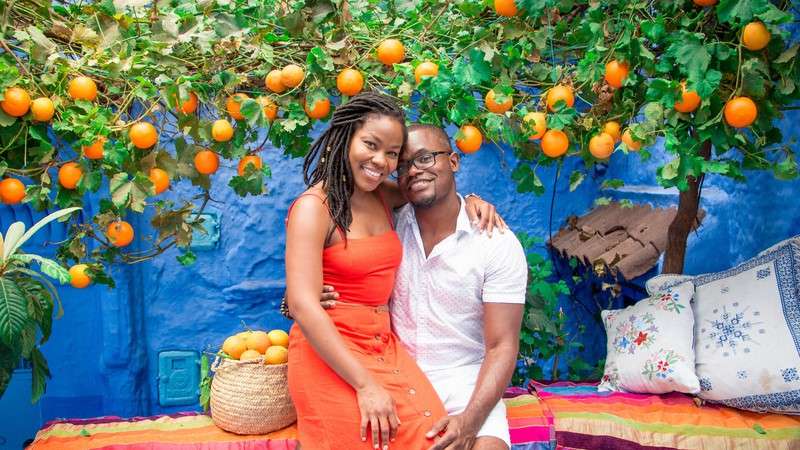
How do you think travel will change post-pandemic and in response to the BLM movement?
After the tragic events of George Floyd, there’s been a resurgence on focusing on diversity, equity and inclusion. People are talking about it. Whether or not they’re going to do something about it is yet to be seen but the fact that conversations are happening is a good sign.
Marketers are starting to focus on Black travellers more. There have been a lot of reports recently about Black travel. One US study said we spend over $100 billion on travel. At Green Book Global, we did our own study. We surveyed over 2,000 Black travellers about post-COVID travel.
COVID made everyone realise you can’t take things for granted. Why wait to save that dream vacation for 5 or 10 years from now? People are booking those trips right now or planning for them in the near future. I think that’s been a big change.
What else do you have going on?
Green Book Global also has a consulting arm. Our mission is to inspire and empower Black travellers to confidently explore the world. We do that with our reviews and our Instagram page. We have over 100,000 followers, and we repost Black travellers in different destinations, to show that Black people are everywhere and to give that vote of confidence for other Black people to get out there and see the world.
But helping Black consumers feel more powerful doesn’t change the industry. I’m trying to work with different destinations and brands, to ask, “What are you actually doing to change the industry, to make it more inclusive and equitable to Black consumers, as well as for Indigenous people and people of colour?” Because of the resurgence of BLM, Black people are the focus now, but it’s going to spill over into other minority demographics.
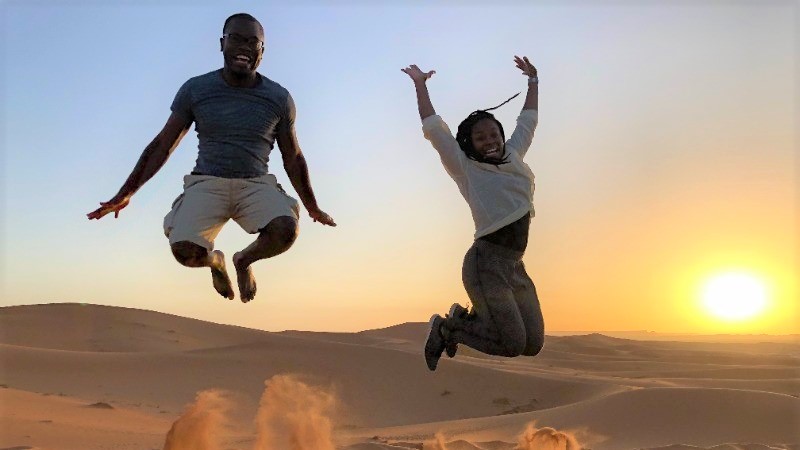
What are some of your favourite destinations, or destinations you recommend for Black travellers?
Johannesburg, South Africa. I went to Jo’burg twice. The first time, because everyone said Jo’burg was so dangerous, I literally did what I just said not to do: I went there as a pass-through city to go on a safari in Kruger National Park. That was a big learning experience for me. I literally stayed in a hotel for 12 hours. I think I went to the mall, came back, I went on the safari, and then left the city.
But because I did that, I needed to go back. I spent about two weeks the next time. I stayed in a few different areas to get a good feel of the city and it was absolutely amazing! Jo’burg is like the heartbeat of South Africa. I made friends with locals, took frequent trips to Soweto in local taxis, supported some entrepreneurship initiatives, went to festivals, and had home cooked meals from friends and their families. It was such a good time!
Another one is Accra, Ghana. I went there in January 2019 for The Year of Return. It marked 400 years since the first slave ship left Africa in 1619 to reach the US. A lot of Black people from the US went to Ghana and West Africa for The Year of Return and it really was an amazing experience.
I especially recommend Accra as a Black traveller. While the history is somewhat bleak, the experience of going to Elmina Castle is a must. Many slaves left Africa from Elmina Castle. We saw the horrendous conditions slaves were kept in, learned about the treatment they received, and even learned that some tribes in Africa participated in the trade. This is something I never learned in school and is not written in most textbooks. I really think every Black person should try to go to Ghana at least once.
Cartagena, Colombia is one more. To me, it’s almost the perfect destination. It hits everything on the list, from things to do to romance and adventure. There’s the beach, history — you’ve got Palenque that’s about an hour and a half away, and there’s a lot of Afro-Caribbean history there. They’ve also got fun nightlife and great food. And travelling while Black was great because of the Afro-Caribbean heritage, so we felt really accepted.
What Intrepid trip would you most like to go on?
I’m curious about the Arctic and would love to do the East Greenland and Iceland Northern Lights tour. I’ve been to Iceland, but it was such a short trip that I didn’t see the Northern Lights, waterfalls or the Golden Circle.
Who are some people in the travel space that inspire you?
I have a few! One is Nadia Henry of Travel with Sparkle. She is the most dedicated travel agent I know and is always out travelling, scoping out the next destination to plan future trips for her clients. I also really respect how much she did during COVID to make sure her clients were protected.
Stephanie Jones from Blacks in Travel and Tourism. She is working to train Black tour operators — making sure their customer service is great, they have the right resources, and giving them a platform to speak to consumers and clients.
Also, Evita Robinson from Nomadness Travel Tribe. That group really started the Black travel movement. And Martinique Lewis, president of Black Travel Alliance. She’s really holding the travel industry accountable and has helped open the door to more diversity, equity and inclusion conversations.
–
You can follow Green Book Global on Facebook, Twitter and Instagram.
Learn more about Intrepid’s diversity and inclusion efforts

